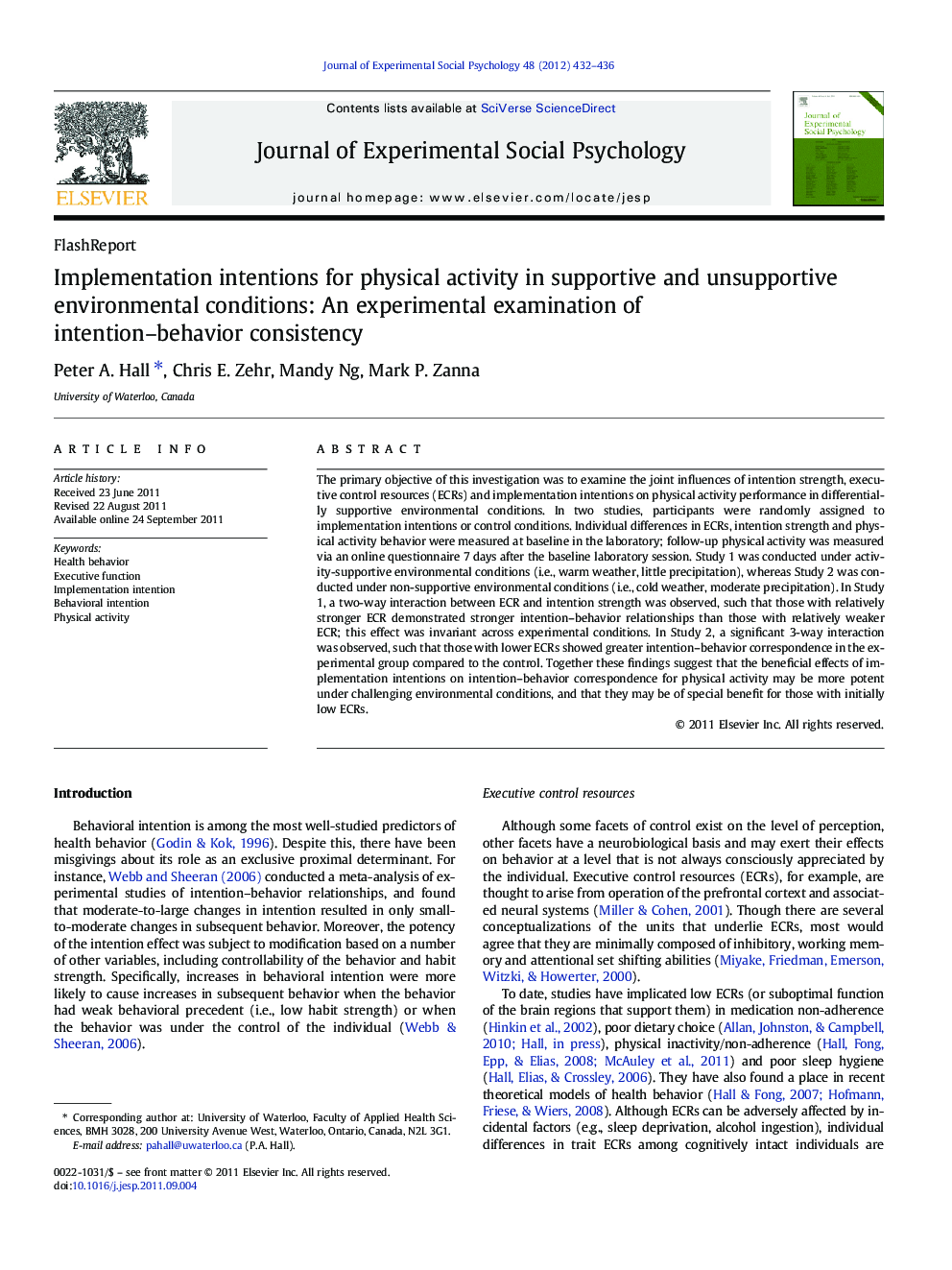| Article ID | Journal | Published Year | Pages | File Type |
|---|---|---|---|---|
| 948264 | Journal of Experimental Social Psychology | 2012 | 5 Pages |
The primary objective of this investigation was to examine the joint influences of intention strength, executive control resources (ECRs) and implementation intentions on physical activity performance in differentially supportive environmental conditions. In two studies, participants were randomly assigned to implementation intentions or control conditions. Individual differences in ECRs, intention strength and physical activity behavior were measured at baseline in the laboratory; follow-up physical activity was measured via an online questionnaire 7 days after the baseline laboratory session. Study 1 was conducted under activity-supportive environmental conditions (i.e., warm weather, little precipitation), whereas Study 2 was conducted under non-supportive environmental conditions (i.e., cold weather, moderate precipitation). In Study 1, a two-way interaction between ECR and intention strength was observed, such that those with relatively stronger ECR demonstrated stronger intention–behavior relationships than those with relatively weaker ECR; this effect was invariant across experimental conditions. In Study 2, a significant 3-way interaction was observed, such that those with lower ECRs showed greater intention–behavior correspondence in the experimental group compared to the control. Together these findings suggest that the beneficial effects of implementation intentions on intention–behavior correspondence for physical activity may be more potent under challenging environmental conditions, and that they may be of special benefit for those with initially low ECRs.
► We examined the impact of implementation intentions on intention–behavior consistency for physical activity behavior. ► Implementation intentions were most facilitative of intention–behavior consistency in unsupportive environmental conditions. ► The beneficial impact of implementation intentions was selective to those with initially low executive control resources.
